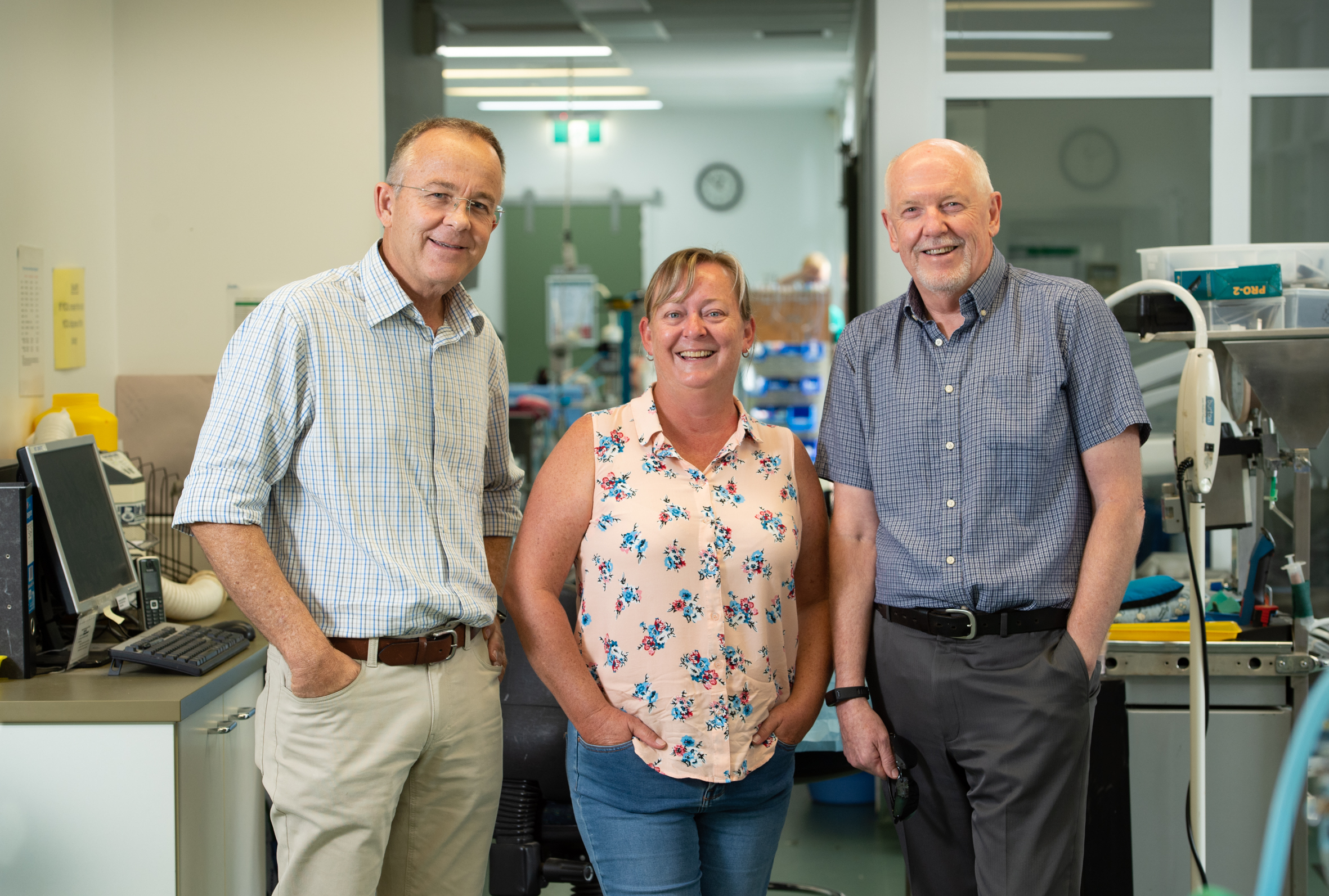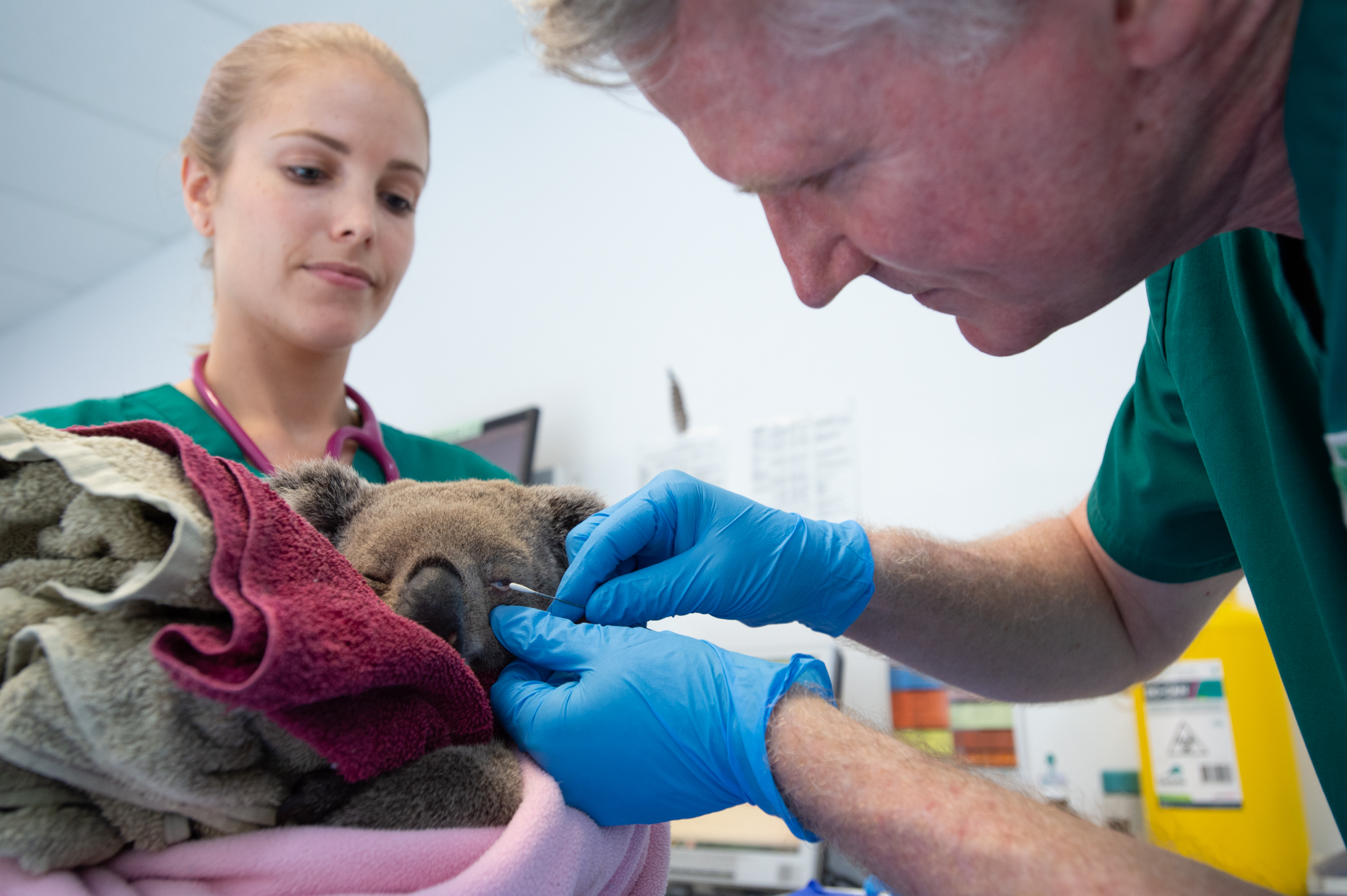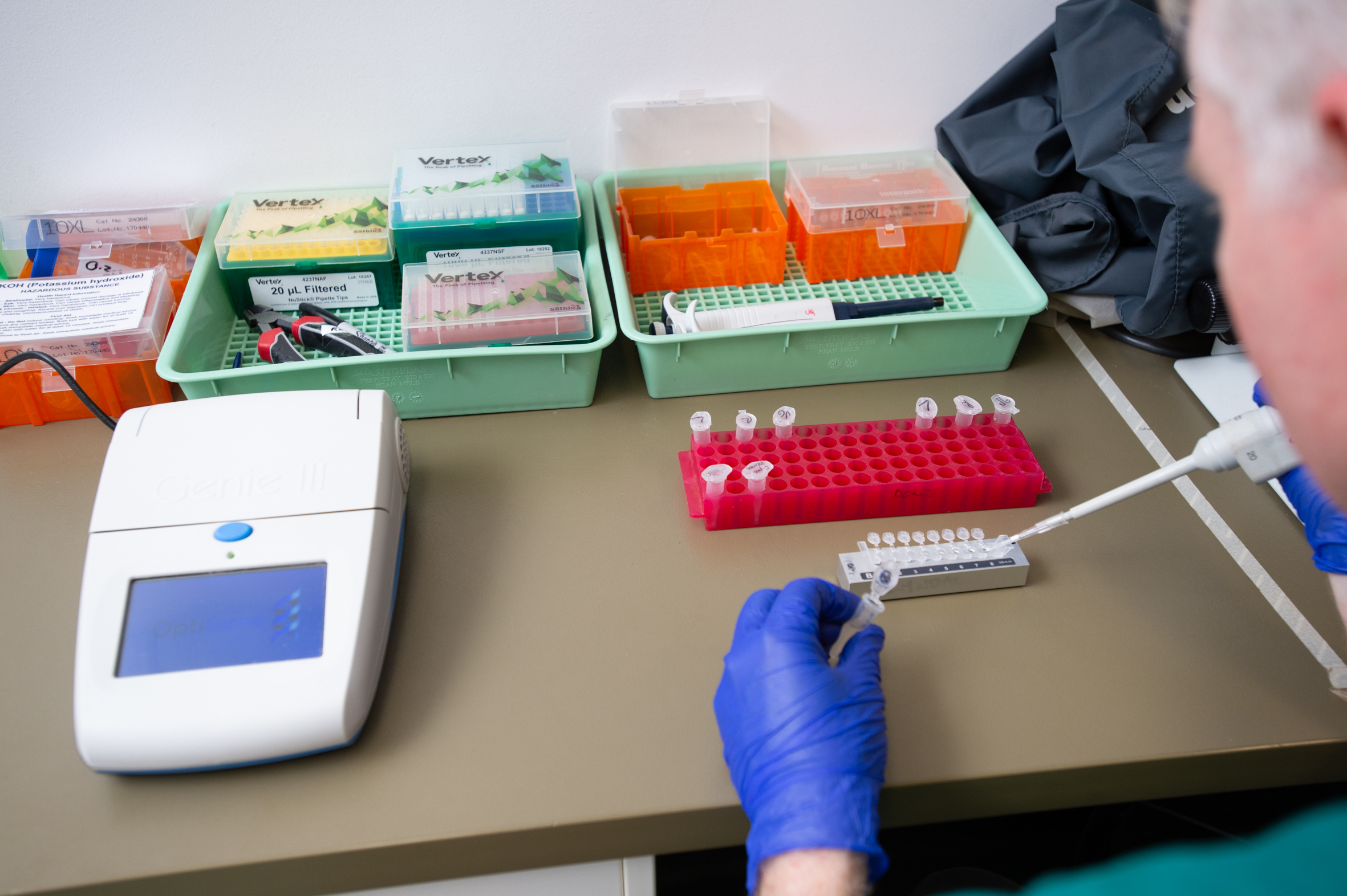
A new DNA test to detect chlamydia infection in koalas which can be run in the field and gives on-the-spot results within 30 minutes has been developed in a research collaboration between QUT and University of Queensland (UQ) researchers.
- Disease caused by chlamydia impacts as many as 90 per cent of koalas in areas of Australia, causing blindness, serious urinary tract infections and infertility, and if not treated can be fatal.
- Current standard laboratory testing for koala chlamydia takes several days, whereas the new quick-turnaround diagnostic test means no delay in starting infected koalas on treatment.
- The new test has been trialled successfully at Currumbin Wildlife Hospital on the Gold Coast.
- The test uses the innovative LAMP (loop mediated isothermal amplification) technology and targets a specific sequence of DNA in the chlamydia bacteria.
Research into the development and validation of the LAMP test was conducted by UQ PhD student Lyndal Hulse, with supervisors QUT Immunology Professor Ken Beagley, who first proposed using LAMP technology to develop a koala chlamydia test, and UQ Zoologist Associate Professor Stephen Johnston. Their report on development and evaluation of the test has been published in the journal MicrobiologyOpen.
The test detects the most common chlamydia strain that affects koalas, Chlamydia pecorum. Swabs of the urogenital tract and eyes are collected and the test is run on the OptiGene Genie platform. The equipment is distributed in Australia by GeneWorks, which assisted with the research project.
Ms Hulse said DNA testing for chlamydia in koalas is usually performed in a diagnostic laboratory using a molecular test known as PCR (polymerase chain reaction), which is the standard due to its reliability, sensitivity and specificity.
“However, this is time-consuming and wildlife veterinarians and koala ecologists have to wait days or longer after they have sent in their samples to get the results,” she said.
“We wanted to design a test that was equally reliable and as accurate as PCR, but one that was more cost-effective, with simplistic swab preparation, that could be done at the point-of-care and provide on-the-spot results.
“The LAMP method provided that opportunity.”

Professor Beagley, from QUT's Institute of Health and Biomedical Innovation, said the LAMP koala chlamydia test was extremely sensitive, successfully detecting even small quantities of the bacteria present.
“When 43 clinical swabs were tested, the LAMP test results matched those obtained through the PCR method,” he said.
“Lyndal has also developed a range of LAMP assays for other koala pathogens, such as Chlamydia pneumoniae and Bordetella bronchiseptica which cause respiratory disease and pneumonia in koalas, so these could in the future be incorporated with the Chlamydia pecorum assay into a single panel test.”
Associate Professor Johnston said the test was fulfilling a need in the fight against the spread of chlamydia among koala populations.
“Koalas can often show no obvious clinical signs of chlamydia, yet they can be highly infectious carrying a heavy bacterial load,” he said.
“This test has such a rapid turnaround time that it means decisions about treatment can be made quickly. And the Genie testing equipment is compact, portable and battery-powered so you can run the test anywhere – for ecologists out in the field it would be simple to set up the required equipment.”

Currumbin Wildlife Hospital general manager and senior vet Michael Pyne said 500 injured, orphaned and sick koalas were brought to the hospital last year, and 80 per cent of them tested positive for chlamydia.
“Chlamydia is so common it is crucial that we test all the koalas, and this test is not only quick, it gives us a semi-quantitative measure to indicate how badly infected the koala is so we can make the appropriate treatment decisions,” he said.
“It’s a minimum of four weeks of antibiotics for chlamydia, so the sooner we can start treatment the better. And with this test we can monitor the koalas and easily test them again to make sure they are clear of infection before they are released back in the wild.”
The researchers’ study was funded by grants from the Queensland Government Koala Research Grant Program and Community Sustainability Action Grants program.
The research team is working with GeneWorks on simplified protocols to make the chlamydia test available for use by anyone caring for koalas, irrespective of whether they have scientific or laboratory training.

QUT Media contacts:
Karen Milliner, 07 3138 1841 or k.milliner@qut.edu.au
After hours: Rose Trapnell, 0407 585 901 or media@qut.edu.au



